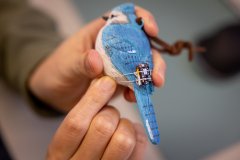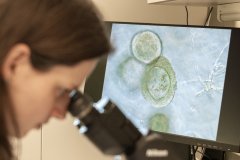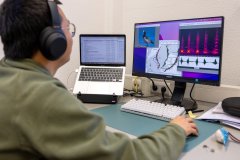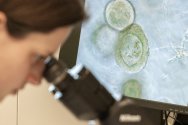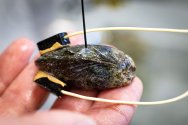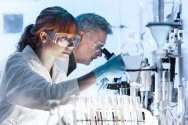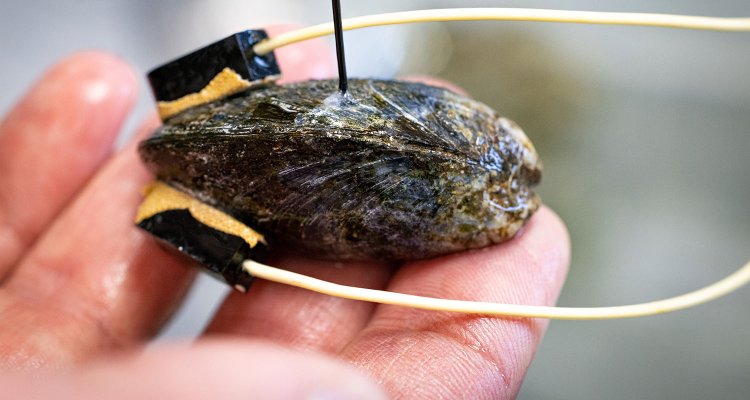
Innovation programme Next Level Animal Sciences (NLAS)
In the innovation programme Next Level Animal Sciences (NLAS), scientists from Wageningen University & Research work together with partners to (further) develop new research methods and technologies that will be of great significance for accelerating knowledge development and innovation in the domain of animal sciences this coming decade.
Using these technologies, great progress can be made in understanding, monitoring and strengthening animal health, resilience and welfare. Both at the level of individual animals, groups and ecosystems.
Lines of research in the innovation programme
1. Sensor technology
Sensor technology makes it possible to monitor the health and welfare of animals continuously and in real time by recording various physiological parameters and behaviour, both in individual animals and in groups.
Innovative and smart forms of sensor technology can also be an alternative to invasive measuring methods and animal experiments.
Within this research line of the Next Level Animal Sciences programme, various types of sensors are being developed for different applications
2. Complex cell systems
Complex cell systems - or organoids - are miniature versions of human and animal tissues and organs. Organoids are self-organising and self-renewing three-dimensional structures that resemble the tissues and organs from which they are derived in structure and function.
Organoid methodology is already widely used in human health research. The aim of this line of research is to develop innovative and non-invasive research methods to improve the welfare, health and resilience of animals. The application of organoids can also contribute to reducing animal experiments.
3. Data and models
Through rapid development in areas such as sensor and imaging technology, large and complex datasets become available; often from various sources. The challenge is to convert these data into useful and meaningful information about the behaviour, health and welfare of animals.
Within this research line, case studies, courses and networking are used to develop and transfer knowledge in the field of tracking data analysis, mechanistic modelling, automatic pattern recognition and complex data analysis.
Areas of expertise
NLAS Magazine
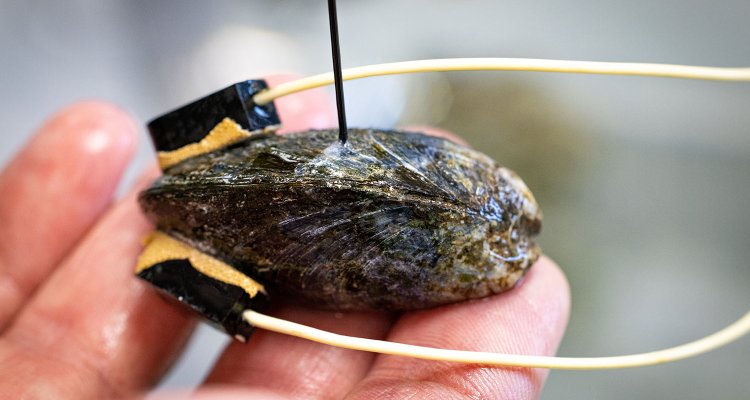
Videos
- Unfortunately, your cookie settings do not allow videos to be displayed. - check your settings
- Unfortunately, your cookie settings do not allow videos to be displayed. - check your settings
- Unfortunately, your cookie settings do not allow videos to be displayed. - check your settings
